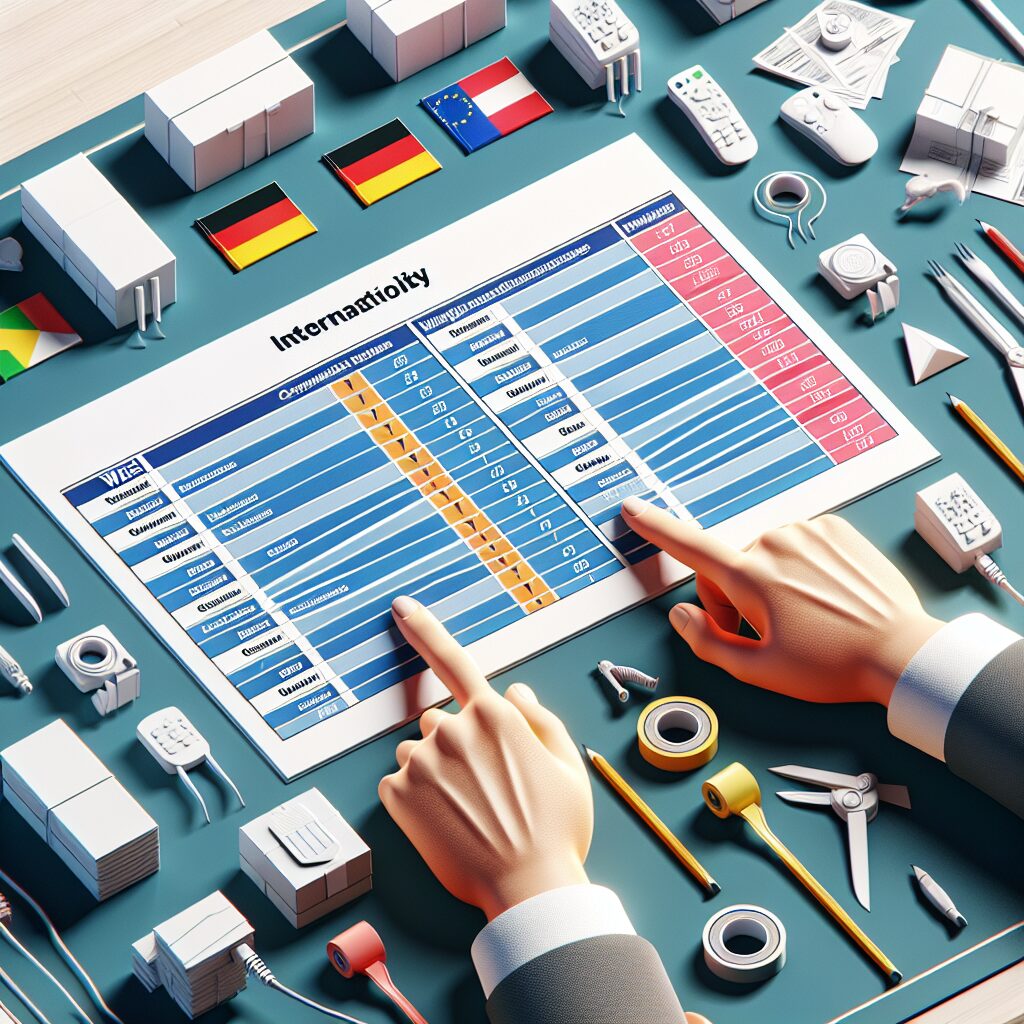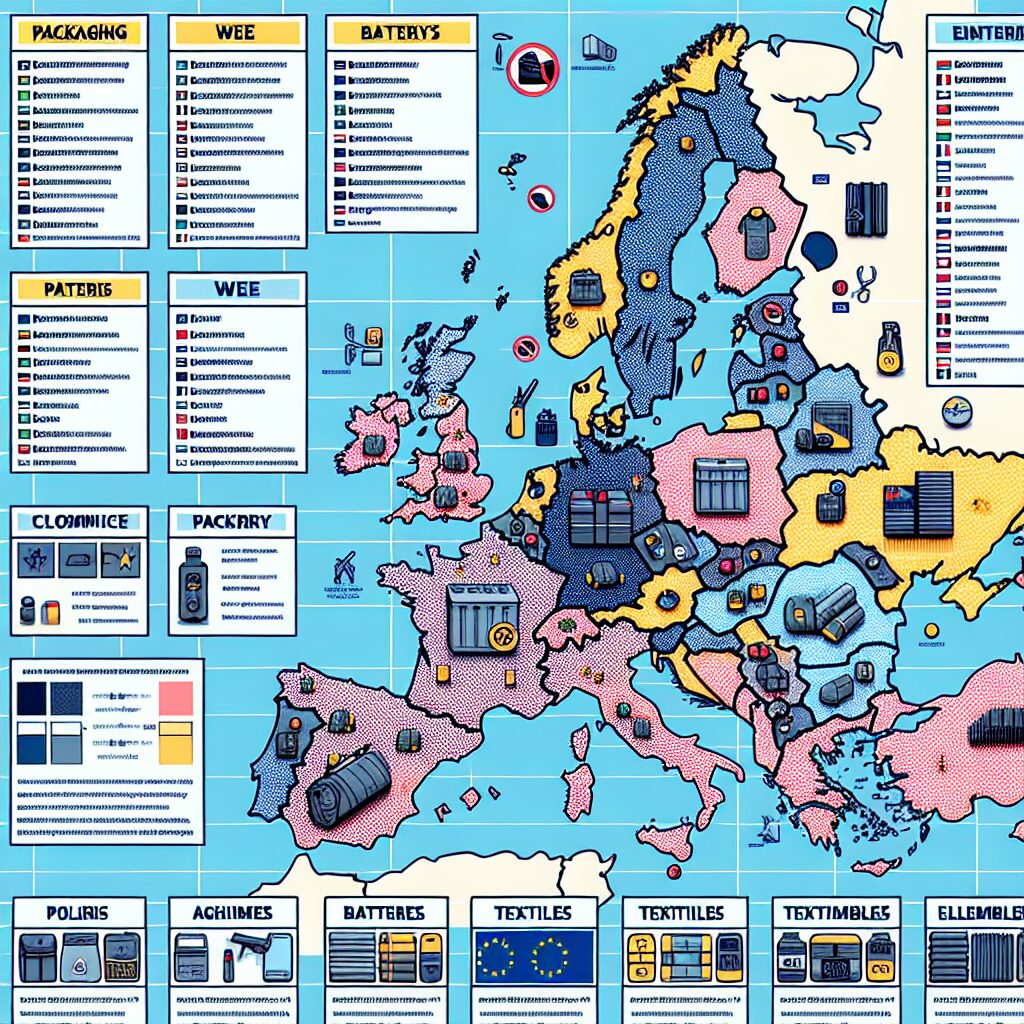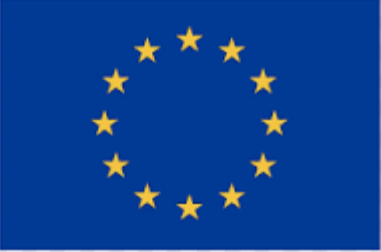About eldris
Epr.eldris.ai leads the EPR sector, in fast, automated, AI Agent EU Complaince. LUCID Packaging, WEEE, and Battery Compliance for Brands, E-Commerce and Service based businesses expanding into the EU.
In This Article
- VerpackG mandates packaging compliance for all sellers entering Germany.
- LUCID registration and dual system licensing are legal prerequisites before sales.
- Start early to estimate packaging volumes accurately and select the right provider.
- Use automation tools to manage reporting complexity and avoid human errors.
- Compliance avoids penalties, enhances brand value, and enables EU-scale expansion.
Understanding the VerpackG and Its 2025 Scope
What is Germany’s VerpackG?
Germany’s VerpackG, formally known as the Verpackungsgesetz, forms the legal backbone of packaging waste management across the country. Introduced in 2019, this legislation aims to reduce environmental impact by regulating how commercial packaging is produced, labelled, and recycled. Crucially, the regulation mandates that any company placing packaged goods into the German market must register with a central database and pay to participate in a recognised recycling programme known as a “dual system”. These are requirements specifically established to enforce ecological responsibility and ensure that entities share in the cost of recycling packaging waste.
As we approach 2025, VerpackG has broadened its scope. The law now covers more packaging types, expands enforcement mechanisms, and demands stricter reporting standards. The concept of “VerpackG dual systems” becomes particularly vital, referring to the network of independent recycling system operators that handle the collection and processing of post-consumer packaging waste. Businesses, whether located within or outside of Germany, must proactively engage with these dual system operators to maintain compliance. Non-compliance is not an option; the legal, financial, and reputational consequences are profound.

The Dual System Explained
How waste recovery systems work under VerpackG
The term “dual system” originates from the twofold structure of waste management in Germany: municipal waste handling and private extended producer responsibility (EPR). Under VerpackG dual systems, businesses contribute financially to private organisations that manage the recycling of packaging they place into the German market. These operators, such as Der Grüne Punkt, Interseroh, and Reclay, operate separately from local public waste services but serve a nation-wide purpose.
Each dual system operator collects data from its licensees and ensures each category of packaging—whether plastic, glass, aluminium, or cardboard—is efficiently collected and recycled. In 2025, enhanced oversight will require systems to meet stricter recycling quotas and traceability protocols. Participating in a dual system does not just mean paying a fee based on volume; it involves continual data submission, compliance audits, and collaboration on waste reduction strategies. For non-German sellers, understanding the mechanics of VerpackG dual systems is a prerequisite for entering the market legally and sustainably.
LUCID Registration Requirements
Steps to get your brand listed
Before engaging with VerpackG dual systems, a firm must first register with Germany’s Central Packaging Registry—Zentrale Stelle Verpackungsregister—via the LUCID online portal. This is a publicly searchable database that promotes transparency and ensures compliance. Registration is mandatory for all producers and first distributors, and it must be completed prior to placing any packaging onto the German market.
To register, an entity must provide detailed information: company name, address, VAT ID, contact person details, and brand names. Upon completion, the company receives a LUCID registration number, which it must provide to its chosen dual system operator. The entire registration process is free, but failure to complete it before distribution can result in an immediate sales ban. Additionally, all subsequent dual system contracts must reference this LUCID number, as it links reporting and contractual obligations together. Learn more about EU Packaging & EPR Compliance
Licensing Packaging in Germany
Selecting a dual system and declaring volumes
After LUCID registration, the next critical step is to contractually engage with a dual system operator. Businesses are required to declare the expected annual volume and category of their packaging, including composites and transport packaging. This declaration must be accurate, as it influences both compliance oversight and financial obligations. Pricing models vary between dual system providers, with some offering flat-fee packages for small quantities, while larger enterprises are charged based on weight and material type.
In 2025, businesses must update forecasts frequently and report actual volumes with greater frequency—often quarterly or even monthly, depending on the provider. This ensures the data ecosystem is synchronised between the LUCID registry and the dual system databases, a process referred to as “data reconciliation”. Brands should prepare in advance to estimate realistic volumes, track shipments, and maintain in-house records for auditing purposes. Underreporting can trigger fines, while over-reporting inflates costs unnecessarily.
VerpackG 2025 Reporting Obligations
Changes coming into force and data expectations
Significant enhancements are being implemented in 2025 that reshape the reporting dynamics for VerpackG dual systems. Now more than ever, businesses must pay close attention to data cleanliness and submission timelines. From January onwards, it is no longer permissible to report estimated values alone. Instead, all filings with both the dual system and the LUCID database must include actual, verifiable figures split by packaging material.
Additional fields have been introduced to include recycled content percentages and proof of eco-friendly design. Moreover, for certain sectors such as food and cosmetics, recyclable packaging must be declared based on DIN standards. Failure to align reports between the LUCID portal and your dual system provider will result in flags for non-compliance. Penalties now include not just fines but also public delisting from the database, leading to reputational harm and potential loss of business partnerships. Official FAQ on Germany VerpackG from ZSVR
Common Pitfalls for Sellers
What international e-commerce brands overlook
Many non-EU sellers make critical errors when engaging with the German market. The most common is assuming that manufacturers or logistics partners are responsible for VerpackG obligations. In reality, the “first market placement” rule means that the brand sending the product into Germany—regardless of origin—bears full compliance responsibility. Consequently, sellers found operating without registration or without a valid dual system contract are punished severely.
Another oversight involves incorrect volume declarations. Some sellers fail to track inner and outer packaging, especially when multiple layers are used for customer protection or branding. These must all be disclosed separately under VerpackG dual systems. In addition, e-commerce platforms including Amazon and eBay now require proof of LUCID compliance before allowing listing access in Germany. Non-compliance can result in automatic takedowns or account suspensions. Read a related article
Choosing the Right Dual System Operator
Price, service levels, and small seller support
The German market offers over a dozen dual system operators, each regulated under VerpackG but varying significantly in service options. When choosing a provider, sellers should not solely focus on price. They must assess reporting portals, multilingual support, frequency of reporting cycles, and assistance for small volume declarations.
Some dual systems specialise in helping small and medium-sized enterprises (SMEs) with easy onboarding, simplified online calculators, and bundled services that include European batteries and electrical waste compliance. Others bring premium consultancy offerings but at a higher price point. In 2025, comparison between providers becomes vital due to rising costs and tighter data obligations. Vetting several operators for your category and order volume ensures you’re not only compliant but also cost-efficient. Upcoming 2025 EU product safety rule changes
Automation Tools for Compliance
Simplify LUCID and dual system reporting workflows
Manually entering and cross-checking data is both time-consuming and risk-prone. To support compliance with VerpackG dual systems, several automation tools have emerged. These tools integrate with inventory platforms, fulfilment centres, and e-commerce CMS systems, enabling automatic collection of packaging data per transaction. Once set up, these tools assist with data reconciliation between the LUCID registry and dual system operators.
By 2025, the level of required digital synchronisation will increase, and businesses will be asked to validate multi-field reports progressively. Automation reduces human errors and ensures timely filing to avoid penalties or sales interruptions. Forward-thinking enterprises are already implementing compliance APIs and middleware to streamline operations. Investing in such technologies not only protects your firm but positions it for future European market expansion.
Enforcement and Penalties in 2025
What happens if you fail to comply?
The 2025 iteration of VerpackG introduces a sterner enforcement landscape. Authorities will rely more heavily on cross-platform data checking. Brands failing to complete LUCID registration, misreporting packaging volumes, or choosing non-certified dual system operators may face administrative bans, fines up to €200,000, and product delisting from marketplaces. Complexity is not an excuse; ignorance of requirements carries no legal protection.
Moreover, both domestic and foreign manufacturers will be publicly listed in a non-compliance registry, which could deter potential business collaborations. German consumers, increasingly sustainability-conscious, look up firms in the LUCID database before purchasing. Therefore, compliance not only shields your business legally but preserves your brand’s goodwill and growth trajectory.
VerpackG Compliance Checklist
Step-by-step roadmap for brands selling to Germany
To ensure comprehensive alignment with the VerpackG dual systems framework, follow these steps:
- Register with the LUCID portal and obtain your producer ID.
- Identify your packaging types and calculate approximate weight per material class.
- Contract a certified dual system operator and declare your expected packaging volume.
- Submit this information to LUCID to reconcile with your recycling partner’s data.
- Set up tracking mechanisms—manually or via automation—to monitor packaging usage.
- File quarterly or monthly reports as dictated by your dual system agreement.
- Update your annual volume declaration and reconcile to actuals at year-end.
- Review your packaging for recyclable material ratios and streamline accordingly.
- Stay updated on legislative amendments affecting packaging and reporting timelines.
- Archive documentation for at least five years for inspection and audit defence.
VerpackG compliance isn’t merely about legal obligation—it’s about sustainable market leadership in Europe’s eco-conscious economy.
Why VerpackG Compliance Is a Competitive Advantage
Complying with VerpackG dual systems does more than keep your business operational—it strengthens consumer trust, enhances your environmental credentials, and differentiates your brand in Germany’s saturated market. German customers are deeply invested in sustainability, and many actively look for transparency in environmental compliance. By being publicly visible in the LUCID registry and partnering with ethical dual systems, your brand earns both compliance and consumer credibility.
Furthermore, aligning with VerpackG prepares your business for pan-European EPR requirements, allowing you to scale without facing regulatory bottlenecks. In a world where compliance is integral to logistics and marketing alike, early investment in VerpackG strategy translates into fast-tracking market access, minimising disruption, and improving competitive resilience.
Great guide on germany-verpackg-dual-systems-licensing-2025-reporting – Community Feedback
What is the dual system under Germany’s VerpackG?
Germany’s VerpackG mandates companies to join a dual system—a waste recovery operator—ensuring their packaging is properly collected and recycled. Registration with a system, packaging licensing, and submission of data via LUCID are all required for compliance.
How do I get a Germany packaging licence for 2025?
To obtain a packaging licence under Germany’s VerpackG, register with the LUCID Packaging Register, select a dual system operator, calculate packaging volumes, and report annual packaging data in 2025 to remain compliant.
What are the new VerpackG reporting requirements for 2025?
For 2025, businesses must register their packaging with LUCID, contract a dual system, and submit annual packaging reports specifying material types and volumes to authorities. Enhanced data accuracy and deadline enforcement are emphasised.









